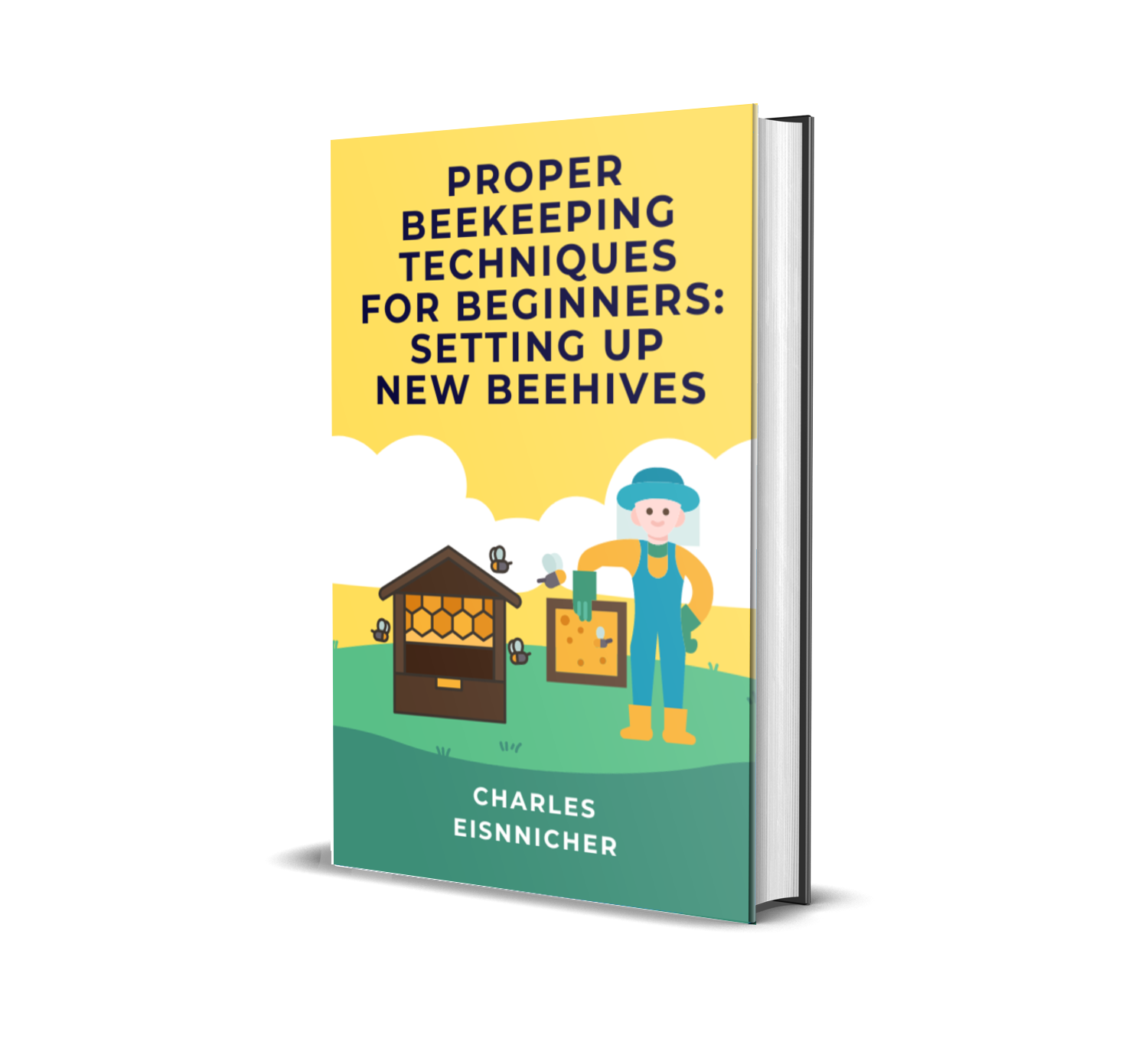The purpose of the hive and the honey bee is to ensure a continuous source of honey and other bee products for human consumption. Honey has been used for centuries for medicinal, nourishing, and culinary needs.
Honeybees are the major contributors of honey production, making it an integral part of the agricultural industry. Hives, the homes of the honeybees, provide the necessary environment for them to produce their sweet liquid gold.
Not just bee bread and bee larvae, but also honey, wax, and propolis, all essential components of the delicate and complex ecosystem that is a beehive.
The honey bee is one of the most historically important creatures, yet many people don’t know about the incredible feats of their hives. This article will explore the sweet success of the honey bee, from their widespread habitat to the complexities of their hives.
From efficient labor divisions to the remarkable health benefits of their byproducts, the hive and honey bee have something remarkable to offer to today’s world. We will look at the development of honey bee colonies and how they are able to flourish, understanding the sweet success of these amazing creatures.
Table of Contents
The Role of the Honey Bee
The honey bee is an essential pollinator, playing a key role in our global food supply. While there are other pollinating species, the honey bee stands out due to its unique ability to collaborate in large colonies in order to efficiently collect, store, and protect resources.
Honey bees are highly sociable insects and work as a cohesive system to collect pollen and nectar from plants, transferring these resources onto other flowers as they feed. This process, known as cross-pollination, is vital to the production of food crops and the preservation of mankind’s food supply.
In addition to the important role these insects play in the ecosystem and our food system, the honey bee is a fascinating organism to observe and appreciate.
The Challenges Faced by the Honey Bee
The honey bee is incredibly important to the environment, responsible for pollinating up to 75% of the world’s food crops. However, they are facing a number of challenges, which are threatening their survival.
The most significant is the increasing intensity of industrial agriculture, which requires more chemical inputs such as fertilizers, pesticides, and fungicides, all of which harm honey bees and other vital pollinators. In addition, the recent spread of honey bee parasites, such as the varroa mite, has meant that honey bee health is suffering in many countries.
Finally, a decrease in the availability of areas for foraging, due to a loss of natural habitats, presents a significant problem for these buzzing pollinators. All of these issues are putting the future of the honey bee in doubt, and through collaboration, we must find ways to protect and preserve this essential species.

Get A Free Downloadable Ebook To Teach You How To Set Up New Beehives
Give Me My Free eBookThe Benefits of Beekeeping
Beekeeping can be a very rewarding and enjoyable hobby! It not only provides pollination for your garden, orchard, or farm, but also produces delicious and healthy honey, beeswax and other products from the hive. Beekeeping is also very educational and can teach one about insect behavior, entomology and biology, as well as the life cycle of bees.
Additionally, beekeeping helps decrease the spread of harmful pests, as bees contact and coat surfaces with a natural insect repellent as they fly from flower to flower. Ultimately, beekeeping is an amazing addition to any outdoor space and will surely be a positive addition to the natural environment!
Beekeeping Equipment
Beekeeping is a fascinating hobby, and having the right equipment is essential for the sustained health of your bees. Startups will need a complete introductory kit, including a beehive, feeder, smoker, brush, hive tool, and protective clothing such as a hat and veil.
More seasoned beekeepers often favor more sophisticated equipment and will often invest in an electric uncapping knife, raised boardman feeders, queen castles, and a nucleus assembly box. Essential components such as a beehive cover and winter quilt may often be overlooked, yet are essential for the protection of the hive from the elements.
To ensure a maximum yield of honey, experienced beekeepers will also often invest in an extractor, nuc box, queen excluder and pollen trap. All of these components are essential for successful beekeeping.
The Science of Colonizing Bee Colonies
The scientific acclimatization of bee colonies has been a complex task ever since the discovery of their immense beneficial traits and role in agriculture. Through trial and error processes, researchers have identified certain factors for successful introduction of new colonies into existing cultures.
Most notably, the selection of an appropriate location and the hive size are both viewed as incredibly important pieces of the success puzzle. Other factors have been established such as the type of bee introduced and the provision of necessary food and water sources.
The time of year can also be used to better increase the odds of survival. Each of these areas involve extensive research and experimentation, as the colonies must be provided with the best possible conditions to succeed.
In the end, the careful application of science has helped to reduce the labor and maintenance normally associated with beekeeping.
Pollination and its Impact on Food Systems
Pollination is an incredibly important process in food production, as it is necessary for crop production. By moving pollen from one flower to another, pollination enables plants to produce the fruits, nuts, and vegetables that humans need for sustenance.
Without pollination, there would be no honey, apples, squash, strawberries, or almonds. In fact, one in three bites of food is made possible by animal-assisted pollination, making it essential in our food systems.
Pollinators such as honeybees, bats, and butterflies, not only create a significant source of human nutrition, but also strengthen ecosystem diversity and maintain agricultural production worldwide.
Honey Production from Bees
Honey production from bees is an extraordinary process. Bees collect nectar from a variety of plants and flowers, store the nectar in their honey sacs, and travel back to the hive.
The nectar is then transformed into honey by enzymes that the bees add. As the honey is stored in the honey comb, more enzymes are added, and the water in the nectar evaporates.
Further, bees fan their wings to help disperse more moisture until a thick syrup is created. This thick syrup is pure honey, and it is then capped with wax.
All in all, honey production is a complex procedure, reliant upon the effort of our tiny bee friends, creating a delicious and nutritious treat.
The Value of Bee Products
Bees are incredibly valuable to our ecosystems; they pollinate thousands of plants, including many of our food sources, and they create unique products that cannot be found in nature. Beeswax, honey, and propolis are some of the main products that can be harvested from bees, each of which offers a variety of benefits.
Beeswax, for example, is used to create a variety of candles, balms, makeup, and more. Honey has myriad health benefits, from healing stomach ailments to hydrating the skin.
Propolis, meanwhile, is a natural antiseptic that has been used for centuries to treat wounds and infections. Thus, bees’ products have incredible value for us: health, beauty, and a natural way to sustain and protect the environment.
Global Demand for Bee Products
Today, the global demand for bee products such as honey, propolis, and bee pollen has dramatically increased due to their many reported health benefits. They are also utilized across many industries, from cosmetics to pharmaceuticals.
Although honey is the most well-known of the bee products, other products — such as propolis, which is a sticky substance gleaned from tree buds and exposed wood — are becoming increasingly sought-after. Bee pollen is a powerful detox agent and often used as a dietary supplement to provide essential nutrients the body needs.
These bee products help to boost the immune system, improve skin health, and reduce inflammation. The global demand for bee products is expected to continue to rise as new industries incorporate these products into their offerings.
The Future of Beekeeping
Beekeeping has evolved from ancient times to become one of the most important modern day practices for protecting our environment and helping farmers produce much-needed vegetables and fruits. As our world continues to face environmental challenges, beekeepers are playing an increasingly critical role in the health of planet Earth.
The future of beekeeping will be largely dependent on how much economic support beekeepers can secure and how strictly beekeepers adhere to the principles of sustainable beekeeping to prevent further colony collapses. Beekeepers will also need to continue to develop new ways to attract and care for bees, as well as methods to identify pests and diseases that threaten the health of the colonies.
With the right support and direction, beekeeping will remain an important part of our world, ensuring the continuity of the vital ecosystem that bees provide.
Recap
The mysterious hive and the busy honey bee have captivated people’s imaginations through generations and have much to teach us. From the power of collective action and the importance of efficiency to the ways of protecting ourselves from environmental threats, we can benefit by learning more about nature’s gifts of the hive and the honey bee.
Though small in size, their influence is lasting and far-reaching. Whether it’s a home gardener who appreciates their pollination or a scientist who looks to them for the latest research, these dynamic creatures will continue to amaze us in the years to come.
Charles

Get A Free Downloadable Ebook To Teach You How To Set Up New Beehives
Give Me My Free eBook










